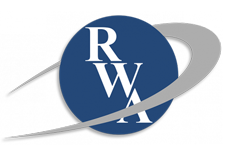Network Security: I’m Sorry, But You’re Not on the List
Often, people are curious about how susceptible their networks might be to cyber attacks and other intrusions. Think of it like this, your network is the biggest New Year’s party of 2018. Everyone wants to see what’s going on inside and they’ll do whatever it takes to get in. To keep the party safe and fun, you’re going to need proper network security.
The alternative is not pretty. Your party crashers can cause astronomically high financial losses (think over $40,000 per cyberattack), and your reputation will go down the drain, too. 31% of customers will leave a healthcare business if their data is compromised, for example.
One way to ensure that the bad element stays out of the network is to apply category-based content filters. These work by analyzing individual websites and placing them in specific categories based on their safety level.
Here are a few of the different categories of sites and content that you can filter out. This will help prevent undesirable people from crashing your network and from inviting others to do the same.
Not Safe For Work (NSFW)
Your business has a lot of leeway in this category. The primary distinction for NSFW is websites or emails that contain either written or visual sexual content, drug use, or gratuitous violence.
The nature of these sites will often put them in direct violation of company sexual harassment and/or morale policies. On top of that, NSFW content is very often riddled with viruses, malware, and other cyber threats.
Social Networks
Social Network filters can be customized to fit your specific business needs. For instance, if you find that your employees are spending far too much time on Facebook or Twitter, you can easily block it from employee access. Social networking isn’t intrinsically dangerous, but the platforms often allow an enormous amount of dangerous content to be featured on their sites.
This has been explored to some depth in studies of the recent impact of falsified news on Facebook. In your business, what it means is that your employees can click into a click-bait website (one designed to peak interest without any actual valuable content) and it might lead to a site filled with phishing links or malware.
Phishing Scams
Phishing is one of the most detrimental web scams. Dangerous phishing emails and sites are designed to look like legitimate pages so that you trust them enough to volunteer sensitive personal and financial information.
A phishing filter will examine all the identifying background code and eliminate these sites to keep your employees from accessing these fake pages.
Malicious URLs
When you access a malicious website, you end up involuntarily downloading ransomware, malware, and other cyber attacks onto your network. Filtering for malicious content helps to spot and track these dangers to prevent your employees from accidentally damaging their hardware and your network.
Peer-to-Peer Sites
If you’ve ever had a friend who talks about owning a movie the day it came out in the theater, he’s probably using a peer-to-peer torrent site. Think of the early days of Napster on this one. These sites operate so that people can share information without regulation. They are horrible for network security.
If someone accesses a peer-to-peer site on your business network, they might download a file thinking it is the new Taylor Swift album and end up with computer virus that wipes out your network and costs you up to $100,000 an hour of downtime while you replace equipment and get things running.
Ready to add filters to your network?
We really want your network to feel the most fantastic party of the year in 2018. If you feel the same, it’s probably a good idea to put together a plan to filter out the unsavory cyber elements. Just give us a call or shoot us an email and we’d be happy to share more about network security filters.











